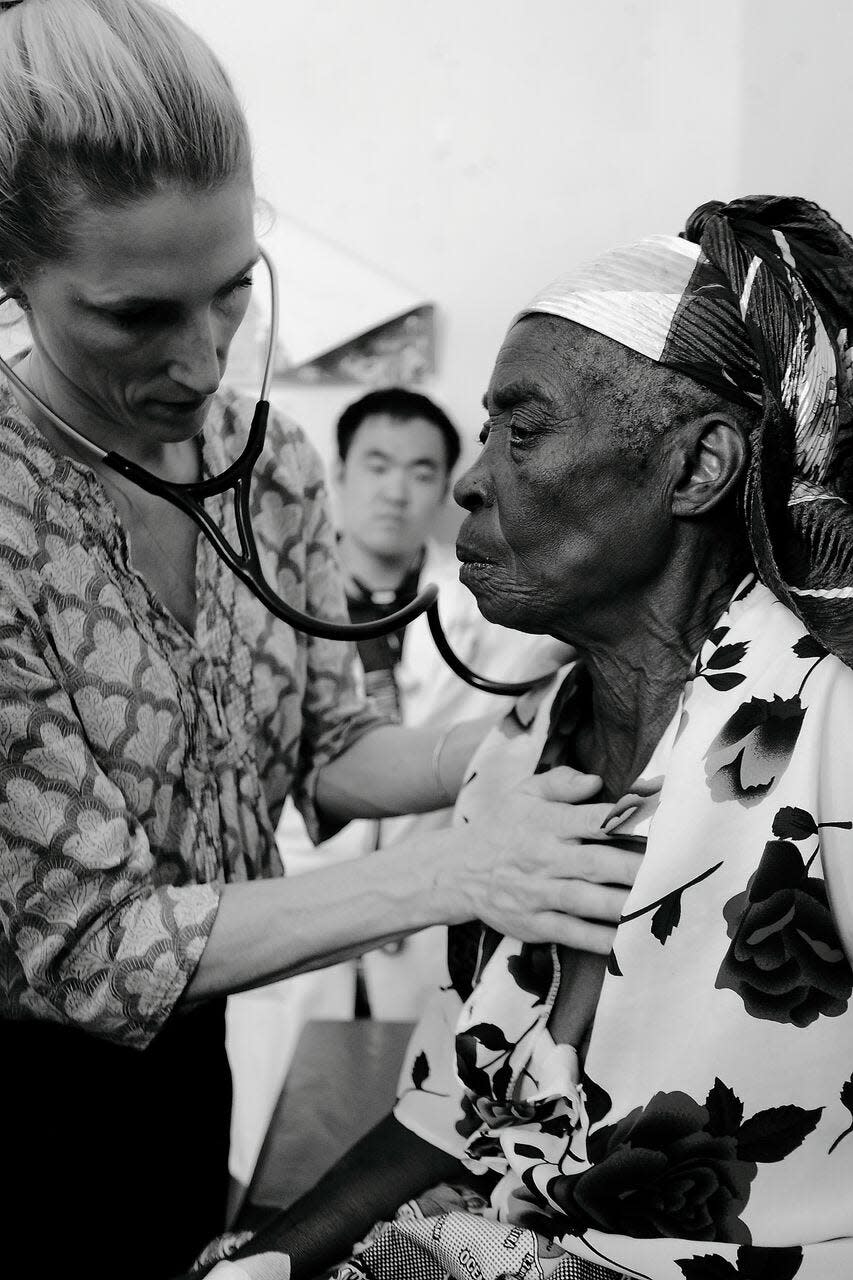I treat COVID patients and work with WHO. Trump is risking our health by cutting ties.
The Trump administration has made a dangerous miscalculation with its decision to sever ties with the World Health Organization. It's not a show of strength or power, nor does it demonstrate a strong stance against China. Instead, it reeks of weakness, hubris and a profound misunderstanding of the scale, scope and danger of the coronavirus pandemic, as well as WHO's role in coordinating a response to it.
I speak from firsthand experience as a physician treating COVID-19 patients at Massachusetts General Hospital, as well as the founder of a non-governmental organization that's worked in concert with the WHO to improve and expand medical capacity in Africa in particular.
The WHO was established over 70 years ago to transcend fragile geopolitics. Its aim is to ensure information is readily available, science is shared and the best practices are provided across borders.
It was created just for the purpose of ensuring the world is empowered to battle a common enemy like COVID-19. Sadly, the critical contributions of WHO are not well-known in the United States, and clearly not understood by the administration, imperiling not just Americans but people around the world.
WHO is the ally we need against COVID
The United States currently bears — by far — the largest burden of COVID-19 cases in the world. While the United States is 4% to 5% of the world’s population, we currently have almost 30% of the world’s officially documented COVID-19 cases. We also have 30% of the world’s deaths. With soaring rates of unemployment, and a death count that could fill stadiums, we should understand the power of the coronavirus to shut down economies, stoke fear and subvert the way of life that Americans have fought to defend.
We also should demand the full arsenal of tools and alliances at our disposal to mitigate and ultimately defeat COVID-19. The WHO is just the kind of ally we need.

The organization has built a rich track record of success in battling infectious diseases. The WHO’s Global Polio Eradication Initiative dropped the global tally from 350,000 cases in 1988 to less than 600 in 2019. Its Measles & Rubella Initiative, begun in 2001, is credited with reducing deaths from the disease by 91% in six years. During the Ebola crisis in 2015, the WHO brought an Ebola vaccine to fruition and ran the vaccine trial when no other organization could.
ER Doctor and Ebola survivor: Trump should build the World Health Organization, not tear it down
In the midst of the current pandemic, the organization has emerged as a steady leader. Director General Dr. Tedros Adhanom Ghebreyesus has continually served as a voice of reason, urging solidarity amid crisis. In March, the WHO launched the global Solidarity trial, an unprecedented effort to find treatments more quickly by working across borders. On May 29, the WHO, in collaboration with 37 countries, launched an alliance to share vaccines, medicines and diagnostic tools.
Don't stamp out global cooperation
However, WHO cannot operate without its member states, on which it relies for financial funding and political support. The United States has always been a strong partner to the agency for good reason. The United States has provided nearly 20% of the WHO's operating funds, helping to strengthen global infectious disease surveillance, develop new vaccines and build programs to battle infectious diseases around the world.
My experience caring for coronavirus patients in the intensive care unit at Massachusetts General has proven on a daily basis that this battle is bigger than partisan politics. As my patients struggle to breathe, I struggle on their behalf with the decisions being made that stamp out global cooperation.
Getting personal: I'm a coronavirus contact tracer. Asking vulnerable people to stay home isn't always easy.
Now is the time to invest in every effort, every partnership, every aspect of science needed to reverse this hellish course. Too many lives are at stake.
I am also the mother of two of the world’s 2.2 billion children. Our children will inherit the values and capabilities that we establish during this moment in history. I would like to think our choices in the face of crisis will honor human life and the strength of coming together as a global community.
In Africa, where much of my work is based, there is a proverb: “If you want to go fast, go alone. If you want to go far, go together.”
Our survival is dependent on going together to fight this battle. The U.S. decision to withdraw funding from the WHO leaves our country more isolated and less equipped to battle the pandemic.
This is unacceptable. Our nation must do better.
Dr. Vanessa Kerry is a critical care physician at Massachusetts General Hospital and founder and chief executive officer of Seed Global Health. Follow her on Twitter: @VBKerry
You can read diverse opinions from our Board of Contributors and other writers on the Opinion front page, on Twitter @usatodayopinion and in our daily Opinion newsletter. To respond to a column, submit a comment to letters@usatoday.com.
This article originally appeared on USA TODAY: Trump risks US health by cutting global ties amid coronavirus pandemic

